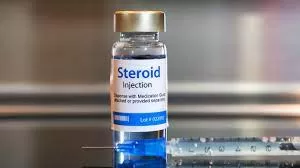A groundbreaking study led by the University of Birmingham and collaborators in Germany has uncovered a concerning association between the misuse of anabolic steroids and an increased risk of atrial fibrillation, a serious heart condition.
Published in the Journal of Physiology, the interdisciplinary research consortium investigated the impact of androgenic anabolic steroids (AAS), commonly misused for muscle building, particularly among young men. The study revealed that individuals genetically predisposed to heart diseases face an elevated risk of atrial fibrillation when using these steroids.
Dr. Laura Sommerfeld, the lead author of the study and a Postdoctoral Researcher at the UKE Hamburg, emphasized the significance of the findings in understanding the potential risks associated with anabolic steroid misuse among young men. Dr. Sommerfeld stated, “Our study sheds light on the specific risk posed by the misuse of steroids, a risk that many individuals may not be aware of, especially those targeted on social media platforms like TikTok.”
Professor Larissa Fabritz, Chair of Inherited Cardiac Conditions at UKE Hamburg and Honorary Chair in the Institute of Cardiovascular Sciences at the University of Birmingham, underscored the implications of elevated testosterone levels in accelerating the onset of heart muscle diseases like arrhythmogenic right ventricular cardiomyopathy (ARVC) and atrial fibrillation.
The researchers investigated the effects of AAS intake on ARVC, a condition primarily attributed to disruptions in heart muscle stability. Clinical patient data from UHB and other institutions confirmed that ARVC occurs more frequently and severely in men than in women. Laboratory experiments revealed that six weeks of AAS intake, in combination with impaired cell connections, led to reduced sodium channel function in heart tissue and a slowing of signal conduction within the atria.
Dr. Andrew Holmes, co-author and Assistant Professor in the Institute of Clinical Sciences at the University of Birmingham, highlighted the heightened risk faced by young men with specific inherited genetic changes. “This work underscores the importance of understanding the potential cardiac consequences of anabolic steroid abuse, particularly among individuals with underlying genetic vulnerabilities,” said Dr. Holmes.
The findings from this study emphasize the critical need for increased awareness and education surrounding the risks associated with anabolic steroid use, especially among young individuals seeking to enhance muscle mass. The researchers advocate for targeted interventions and screening measures to mitigate the potential cardiac complications of steroid misuse and protect public health.












